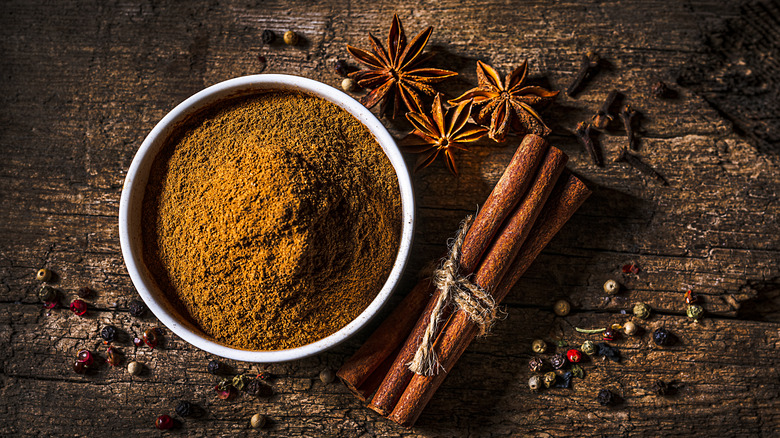You’ll find the spice in apple crumbles, cinnamon rolls, and baklava. It’s also regularly added to curries and rice dishes of South Asian origin. Cinnamon was touted for its antioxidant and antibacterial benefits long before it made it to everyone’s pantry cupboards. So it really shouldn’t be all that big of a surprise that this aromatic ingredient is a natural remedy for bad breath, too. And it’s not just the nice aroma of the spice that banishes the foul smell.
Made from the bark of trees from the Cinnamomum family, cinnamon originally comes from Sri Lanka, India, and Myanmar, although you can also find commercial cultivation of the spice in South America. Once considered more precious than gold, this spice has been used for medicinal, religious, and cooking purposes for many years (the earliest mention of it was back in 2800 B.C.).
While its more popularly known health benefits have to do with the spice’s anti-inflammatory properties that fight infections and how it reduces the risk of heart disease, reduces blood sugar levels, and decreases insulin resistance (via Healthline), the antibacterial nature of cinnamon can ward off the effects of bad breath-causing bacteria too, per Medical News Today. Another reason to eat cinnamon every day. How does this happen exactly?
Cinnamon is powerful at killing off bad breath-causing bacteria

Whether looking for fixes for bad breath other than mouthwash to turn to every morning or trying to combat halitosis (an oral health issue that causes bad breath), cinnamon could be an easy and efficient addition to your life.
According to a study by the University of Illinois at Chicago College of Dentistry, cinnamon-flavored gum came out on top when eradicating bad breath-causing bacteria (40% of them, to be exact). The research recruited 15 people who were asked to arrive for the trial without brushing their teeth and then chew on three different variations of gum (one that had cinnamic aldehyde, one that had no flavor, and another that had everything except cinnamic aldehyde), per Science News. The gum with cinnamon flavoring seemed to work the best at eradicating bad-breath-causing bacteria like Porphyromonas gingivalis, Fusobacterium nucleatum, Prevotella intermedia, and Peptostreptococcus micros.
“Our study shows that chewing gum can be a functional food, having a significant impact on oral hygiene over the short term, if it contains antimicrobial agents such as cinnamic aldehyde or other natural active compounds,” explained professor of periodontics and associate dean for research at the UIC College of Dentistry, Christine Wu (via Science Daily). Bad breath woes aside, cinnamon could also help with toothaches and prevent gum disease, per Healthline.
How to use cinnamon for bad breath
The simplest thing you can do is chew on cinnamon sticks, according to Gentle Dental. But there are also other ways to incorporate this spice into drinks like a cup of cinnamon tea every day or cinnamon and honey water.
Boil some water, pour it into a mug, add some cinnamon powder in there together with some honey, mix, let it cool, and sip on this each morning or whenever you feel like you want some fresh breath. But keep in mind that there’s also such a thing as too much cinnamon, which can result in irritation in your mouth, liver issues, and too-low levels of blood sugar (via WebMD). Perhaps you can also try using cinnamon-flavored mouthwashes or gum. There are plenty of cinnamon mouthwash DIY recipes online too.
However, it’s important to note that health conditions like halitosis require an all-round approach of good dental hygiene, effective tongue cleaning, and advice from your doctor. Cinnamon-flavored drinks could be a complement to an already well-established dental hygiene routine but should probably not be the only thing you’re trying to keep your mouth smelling fresh.